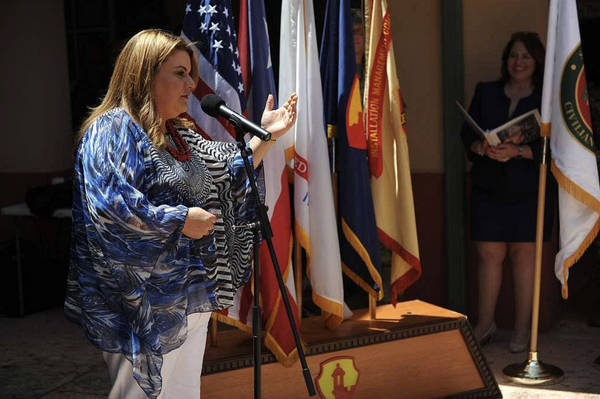
“I love talking about nothing,” Oscar Wilde once said. “It’s the only thing I know anything about.” He would have loved Postcards from London (2018), in which the very premise is built on the Wildean archetype of the gay dandy, but lacks most of Wilde’s wit and profundity.
After writer-director Steve McLean’s 1994 David Wojnarowicz biopic Postcards from America, his first fully fictional film follows Jim (Harris Dickinson), an “eighteen—I mean twenty-one”-year-old from Essex who arrives in Soho and is taken under the wing of four (“we used to be five”) debonair sex workers. Jim attracts the group, led by David (Jonah Hauer-King) and including dandies of Spanish, Italian, and French extraction (Alessandro Cimadamore, Leonardo Salerni, and Raphael Desprez, respectively), because he’s built like a Greco-Roman statue. (A photoshoot sequence to create Jim’s calling card offers ample proof.)
They call themselves raconteurs because what they sell isn’t just gay sex, it’s the post-coital conversation filled with witty banter and cultured allusions to art and artists of every medium and age. They spend their days immersed in books on art and artists (and artist gossip), and their highest aspiration is to become the muse to a famous painter. At the moment, they’re obsessed with Caravaggio.

It sounds like they’re commodifying artistic knowledge in addition to their bodies, but surprisingly the film is dead serious about art. When Jim completes his basic education, David throws a hypothetical scenario at him by describing a client and asking him to recommend a painting. Jim’s answer displays a moving insight into the client’s psyche and stage of life, and he recommends Caravaggio’s Flagellation of Christ, the perfect painting for all the right reasons. Unfortunately, this is the emotional high point of the film, and we’ve still got an hour to go.
The biggest problem is that Dickinson is a sponge of infinite capacity: He soaks up whatever the situation throws at him but only contributes his own emotional state in drips and drops. This partly has to do with a standard hurdle of the Künstlerroman genre, which depicts the protagonist’s transformation from tabula rasa to fully-fledged artist; but whereas typically the artist matures when the evidence of her own eyes dispels her idealistic indoctrination, Jim leads a perfect life. He’s even given a position as muse to famous painter Max (Richard Durden). There’s no meat to Dickinson’s character, so to speak, and Dickinson doesn’t have enough screen presence to transcend the writing; Jim exists solely to let McLean create a world around him.
Oh, but what a world it is! Eschewing any hint of naturalism, Ollie Tiong’s production design is flamboyantly artificial, all neon signs and moody tinted lights. And when the action takes place in one-off locations, there isn’t even a set at all, just a blacked-out backdrop, hanging gilded frames, and isolated sculptures. The entire experience is like a hip, cool, miniaturized, and self-aware version of The Truman Show (1998).

As if all that weren’t stylish enough, the soundtrack (arranged by Julian Bayliss) is brimming with nostalgia and features two crooning contributions from Hauer-King. As Jim first makes his way through the back alleys of London, we hear Hauer-King’s “Lover (Muse),” which has the spot-on lines, “Do you see heaven / wiped across my face? / Do you see an angel / taking its place?” And in a later bout of Jim’s alley-walking, Hauer-King offers a rendition of the jazz standard “My Funny Valentine,” highlighting Jim’s self-doubt with the inimitable line, “Is your body less than Greek?”

The perfect Jim doubts his aptitude for his chosen profession because he discovers that he has Stendhal syndrome, named after the 19th-century French novelist who famously fainted from the plethora of beautiful art in Florence. In the film’s imaginative version, upon seeing a masterpiece Jim gets tremors, faints, and finds himself in the painting, bickering with the other posing, costumed models and being told to shut up by the painter. At one point, Caravaggio (Ben Cura)—who’s having a particularly bad day in a life full of bad days—challenges him to a duel, and Jim finds real blood flowing from an oneiric nick. Disappointingly, the film declines to pursue this Matrix-esque development.
Word of the fainting raconteur travels fast, and Jim is accosted at the local bar by Paul (Leemore Marrett, Jr.), the sold-out fifth member of the raconteurs who entices him with wads of cash to use his Stendhal syndrome to detect forgeries. But Jim ultimately decides that this is one bridge of prostitution too far, there’s a dance interlude, and Jim walks away into the darkness. Finis. Seriously, that’s how the film ends. I’m as shocked as you are.
McLean has a keen eye for the visual and the plastic, but on the evidence of Postcards from London he’s somewhat lacking with regard to the narrative and performance arts. The film, to quote Wilde again, is “the prettiest of playthings, the most fascinating of small romances.” Adjust your expectations accordingly.
Established in 2014, Taiwan International Queer Film Festival (TIQFF) is the only LGBTQ film festival in Taiwan. The 2019 TIQFF will be held from August 15 to August 25 in Taipei and from August 28 to September 8 in Kaohsiung.
TNL Editor: Daphne K. Lee (@thenewslensintl)
If you enjoyed this article and want to receive more story updates in your news feed, please be sure to like our Facebook page below.







